
INTERNATIONAL JOURNAL OF OFFSHORE AND POLAR ENGINEERING
Scope & Guideline
Elevating Standards in Civil, Mechanical, and Ocean Engineering
Introduction
Aims and Scopes
- Offshore Renewable Energy Systems:
Research on the design, analysis, and performance of offshore renewable energy structures, particularly floating offshore wind turbines and wave energy converters, using advanced numerical simulations and experimental methods. - Marine Structural Integrity and Safety:
Focus on the assessment and enhancement of the structural integrity of marine structures, including pipelines, platforms, and vessels, through methodologies like finite element analysis and hybrid modeling techniques. - Hydrodynamics and Fluid-Structure Interaction (FSI):
Investigation of hydrodynamic forces acting on marine structures and the interactions between fluids and structures under various conditions, utilizing computational fluid dynamics (CFD) and smoothed particle hydrodynamics (SPH) methods. - Ice and Environmental Interaction Studies:
Examination of the effects of sea ice dynamics on offshore operations, including ice forces on structures and the impact of environmental conditions on marine engineering. - Machine Learning and Data-Driven Approaches:
Integration of machine learning techniques for predictive modeling and real-time monitoring in offshore engineering applications, enhancing decision-making processes and operational efficiencies. - Numerical Modeling and Simulation:
Development and application of advanced numerical methods for simulating complex marine phenomena, including wave interactions, sediment transport, and multi-phase fluid dynamics.
Trending and Emerging
- Advanced Numerical Methods and Hybrid Modeling:
Increased focus on hybrid modeling techniques that combine various numerical methods, such as finite element analysis with machine learning approaches, to enhance predictive capabilities and accuracy. - Sustainability in Offshore Engineering:
Growing emphasis on sustainable practices in offshore engineering, including the development of eco-friendly materials and energy-efficient designs for marine structures. - Real-time Monitoring and Predictive Maintenance:
Emerging research on real-time monitoring systems and predictive maintenance strategies using data assimilation and machine learning, aimed at improving operational efficiency and safety. - Behavior of Floating Structures in Extreme Conditions:
In-depth studies on the dynamic response of floating structures under extreme environmental conditions, such as freak waves and severe ice interactions, reflecting the need for resilient design. - Integration of Artificial Intelligence in Marine Applications:
Rising interest in applying artificial intelligence techniques for optimization, control, and analysis in marine engineering, enhancing the efficiency of operations and designs.
Declining or Waning
- Traditional Ship Design Approaches:
Research centered on conventional ship design methodologies has decreased, as newer technologies and modeling techniques gain traction in the field. - Static Structural Analysis:
There is a noticeable decline in studies focused solely on static analysis of marine structures, as dynamic and fluid-structure interaction analyses become more prevalent. - Basic Environmental Impact Assessments:
Basic assessments of environmental impacts, without advanced modeling or mitigation strategies, are appearing less frequently, indicating a shift towards more comprehensive and innovative approaches. - Conventional Material Studies:
Research focusing on traditional materials without consideration of new composites or environmental factors is diminishing, as the field moves towards more sustainable and advanced materials.
Similar Journals
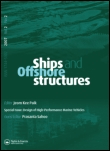
Ships and Offshore Structures
Exploring New Frontiers in Offshore ResearchShips and Offshore Structures, published by Taylor & Francis Ltd, is a premier academic journal dedicated to advancing research in the fields of mechanical and ocean engineering. With an esteemed ISSN of 1744-5302 and an E-ISSN of 1754-212X, this journal has established a strong reputation, reflected in its Q2 ranking in both the Mechanical Engineering and Ocean Engineering categories, as well as its impressive Scopus rankings. The journal provides a platform for the publication of high-quality, peer-reviewed articles that address innovative design, construction, and operational challenges faced in the maritime and offshore industries. Although the journal does not currently offer open access, its accessibility through institutional subscriptions ensures that it remains a valuable resource for researchers, professionals, and students alike. By fostering interdisciplinary dialogue and disseminating cutting-edge research, Ships and Offshore Structures plays a crucial role in shaping the future of marine technology and engineering practices on a global scale.
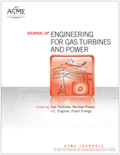
JOURNAL OF ENGINEERING FOR GAS TURBINES AND POWER-TRANSACTIONS OF THE ASME
Connecting Academia and Industry in Energy InnovationJournal of Engineering for Gas Turbines and Power - Transactions of the ASME, published by the esteemed American Society of Mechanical Engineers (ASME), is a leading interdisciplinary journal dedicated to advancing the fields of energy engineering, aerospace, nuclear energy, and mechanical engineering. With an impressive history dating back to 1960 and continuing its contributions through 2024, this journal boasts a Q2 ranking in multiple engineering categories, reflecting its strong impact on both academia and industry. Although not an open-access journal, it provides invaluable insights and research findings that cater to the needs of professionals, researchers, and students alike. The journal's ISSN is 0742-4795 with an E-ISSN of 1528-8919, ensuring widespread visibility in the global academic community. Indexed in Scopus, it ranks notably within its fields—21st in Nuclear Energy and Engineering and 51st in Aerospace Engineering—underscoring its relevance and contribution to critical technological advancements. Researchers in this domain will find the journal a vital resource for innovative studies, practical applications, and the latest developments related to gas turbines and power generation.
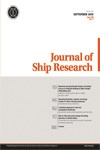
JOURNAL OF SHIP RESEARCH
Advancing maritime innovation through cutting-edge research.JOURNAL OF SHIP RESEARCH is a premier publication in the field of marine engineering and naval architecture, published by the Society of Naval Architects and Marine Engineers. With a focus on advancing the science and practice of ship design and construction, this journal has become a vital resource for researchers, professionals, and students alike. The journal spans a historical range since its inception in 1969 and provides critical insights and advancements in various related disciplines, highlighted by its strong quartile rankings in Applied Mathematics and Ocean Engineering as of 2023. Although not an open-access publication, it offers valuable research papers that are influential in shaping engineering practices and methodologies across the globe. With an ISSN of 0022-4502 and an E-ISSN of 1542-0604, the journal is available to a broad audience, providing essential knowledge that bridges theory and practical applications in the evolving maritime domain.

International Journal of Multiphysics
Exploring the Frontiers of Multiphysics ResearchWelcome to the International Journal of Multiphysics, a pioneering platform dedicated to the expansive field of multiphysics and its applications across various engineering disciplines. Published by MULTI-SCIENCE PUBL CO LTD since 2007, this Open Access journal plays a crucial role in disseminating innovative research findings that advance our understanding of complex interactions in multiphysical phenomena. With its ISSN 1750-9548, the journal has made significant contributions within its converged years from 2010 to 2024, offering insights into Computational Mechanics, Fluid Flow, Mechanical Materials, and Numerical Analysis with a current classification in the Q4 Quartile across multiple relevant categories. Researchers, professionals, and students will find valuable information and cutting-edge studies by accessing the journal from the United Kingdom, and thus contribute to ongoing dialogues in these critical areas of study. The International Journal of Multiphysics represents an essential resource for those aiming to innovate and enhance our knowledge of interactive systems in engineering and applied sciences.
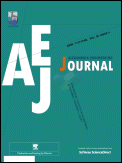
Alexandria Engineering Journal
Shaping the future of engineering with cutting-edge insights.Alexandria Engineering Journal is a premier open access publication dedicated to advancing the field of engineering. Published by ELSEVIER and headquartered in Amsterdam, the Netherlands, this journal has been at the forefront of disseminating innovative research since its inception in the year 2000. With its impressive Q1 ranking within the Engineering (miscellaneous) category and a notable position as #20 out of 307 in the Scopus rankings, it serves as a vital resource for scholars and practitioners alike, ensuring that cutting-edge findings reach a global audience. The journal is accessible to all since adopting open access policies in 2010, thereby facilitating the sharing of valuable insights without barriers. As we approach the convergence of years from 2000 to 2024, the Alexandria Engineering Journal continues to play a pivotal role in shaping engineering practices and underpinning significant advancements in the field.

CHINA OCEAN ENGINEERING
Navigating the Future of Marine TechnologyCHINA OCEAN ENGINEERING, published by SPRINGER MEDIZIN VERLAG GmBH, is a prominent journal in the fields of Mechanical Engineering, Ocean Engineering, and associated environmental sciences. With its ISSN 0890-5487 and E-ISSN 2191-8945, this journal caters to a broad audience engaged in research and development related to ocean systems and technologies. As evidenced by its Q2 ranking in Mechanical Engineering and Ocean Engineering, as well as its Q3 placement in Oceanography and Renewable Energy, Sustainability and the Environment for 2023, it provides a critical platform for disseminating innovative research and progressive ideas in these dynamic and interdisciplinary fields. The journal is committed to advancing the science of ocean engineering by focusing on sustainable practices and technological advancement, making it an essential resource for researchers, professionals, and students alike. With contributions from leading experts worldwide, CHINA OCEAN ENGINEERING is dedicated to exploring the multifaceted challenges and opportunities presented by our oceans.
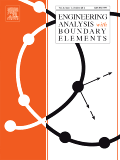
ENGINEERING ANALYSIS WITH BOUNDARY ELEMENTS
Unveiling Insights at the Intersection of Engineering and MathematicsEngineering Analysis with Boundary Elements is a premier journal dedicated to the rapid dissemination of innovative research in the fields of engineering, applied mathematics, and computational mathematics. Published by Elsevier Science Ltd, this journal has established itself as a significant contributor to the academic community since its inception in 1989, continuing to publish cutting-edge findings through 2024. With an impressive Q1 ranking in Engineering (miscellaneous) and Q2 rankings in Analysis, Applied Mathematics, and Computational Mathematics, it is recognized for its rigorous peer-review process and high-quality content, as evidenced by its competitive Scopus rankings. The journal aims to foster interdisciplinary collaboration and advance knowledge in boundary element methods while offering insights into contemporary challenges facing engineers and mathematicians. Researchers, professionals, and students will benefit from its comprehensive approach, access to pivotal studies, and a platform for sharing their discoveries. Although not an open-access journal, it provides substantial value to anyone engaged in the dynamic intersection of engineering and mathematics.

International Journal of Engineering Research in Africa
Elevating African Engineering Research GloballyThe International Journal of Engineering Research in Africa is a pivotal academic resource for researchers, professionals, and students interested in the multifaceted field of engineering within the African context. Published by TRANS TECH PUBLICATIONS LTD, this journal facilitates the dissemination of innovative research, covering a myriad of topics in engineering, from advanced materials to sustainable practices. With an ISSN of 1663-3571 and E-ISSN 1663-4144, this publication not only fosters scholarly communication but also contributes to the global engineering discourse, as evidenced by its current Q3 ranking in the Engineering (miscellaneous) category in 2023. Operating from its base in Switzerland, the journal has been actively publishing since 2010 and continues to play a vital role in the advancement of engineering knowledge, particularly in the African landscape. Although it does not offer an open access model, the journal's commitment to quality research ensures that it remains a valuable asset for those seeking to understand and innovate within the engineering sector. Its integration in Scopus with a rank of #175 out of 307 in General Engineering further underscores its relevance and impact in the engineering community.

Computational Particle Mechanics
Exploring Dynamic Solutions in Engineering and MathematicsComputational Particle Mechanics, published by SPRINGER INTERNATIONAL PUBLISHING AG, is a leading journal dedicated to advancing knowledge in the interdisciplinary fields of computational mechanics, civil engineering, and fluid dynamics. With an impressive impact factor reflecting its high-quality research publications, this journal maintains a strong presence in the academic community with a Q1 ranking in categories such as Civil and Structural Engineering, Computational Mechanics, and Numerical Analysis as per the latest 2023 evaluations. Researchers and professionals benefit from the journal's commitment to open-access options, promoting wider dissemination of groundbreaking studies. Operating under the Swiss publishing house since 2014, Computational Particle Mechanics aims to foster innovation through the exploration of particle-based methods and simulations, making significant contributions to methodologies within computational mathematics and modeling. As the journal continues to evolve until its converged years end in 2024, it stands as a vital resource for those looking to enhance their expertise in dynamic modeling and simulation techniques.
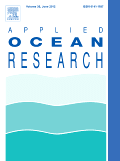
APPLIED OCEAN RESEARCH
Empowering Solutions for a Sustainable Ocean FutureApplied Ocean Research, published by Elsevier Scientific Ltd, stands as a premier journal in the field of ocean engineering, with an impressive impact factor derived from its esteemed reputation and contributions to the discipline. Having been established in 1979, the journal has continually provided a platform for groundbreaking research, fostering innovation and advancement in applied ocean science through a diverse array of topics, including marine technology, coastal engineering, and ocean energy. Currently holding a prestigious Q1 ranking in the Scopus category of Ocean Engineering, with a rank of 10 out of 105 and a notable 90th percentile, Applied Ocean Research is a vital resource for researchers, professionals, and students dedicated to understanding and solving complex challenges linked to ocean environments. Although it provides subscription-based access, the depth and quality of research featured make it a key reference point for those in academia and industry alike. Located in the heart of London, this journal embodies a commitment to excellence in the study of ocean phenomena, positioning itself as a critical conduit for knowledge dissemination and professional growth in this dynamic field.